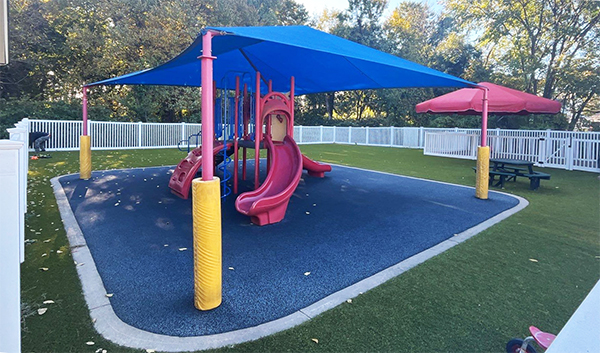

Navigating PCB Remediation: USEPA and NJDEP Compliance
Ask ESA
How can we help you resolve your environmental issues? Practical advice from expert environmental consultants. On the house.

CASE STUDY: CHILD CARE CENTER
To facilitate expansion of an existing childcare center (CCC), ESA was retained to conduct a Preliminary Assessment to fulfill regulatory compliance requirements for New Jersey Department of Environmental Protection (NJDEP) and New Jersey Department of Children and Families (NJDCF) CCC licensing.
TRADE EVENT CALENDAR
Team ESA looks forward to the opportunity to discuss your most pressing environmental concerns in person. And, if you can’t catch us at one of these events, we’re happy to discuss your project with you one-on-one. Just reach out via email or phone.
Jun 4-5, 2025: NAIOP I.CON East @Hyatt Regency Jersey City
Jun 11, 2025: SIOR Networking Event @Upper Montclair Country Club
Jun 16, 2025: Gateway Golf Classic @Little Mill Golf Club, Marlton
Jun 16, 2025: IOREBA Golf Outing @Morris County Golf Club
Jul 21, 2025: SIOR Golf Outing @Essex Fells Country Club
Aug 13, 2025: CIANJ Enterprising Women in Commerce Reception @Glen Ridge Country Club




Contaminated Site Remediation & Redevelopment (CSRR) is pleased to announce the soft launch of the Contaminated Sites Explorer web mapping application. Designed for the general public, the Explorer is comprised of three parts: an interactive Explorer Web Map, an Explorer Dashboard, and Remediation Background. The Explorer Web Map takes electronically available information and provides a high-level summary of a remediation of interest, including locational information, media impacted, areas of concern, remediation status, phase of remediation, and past and upcoming timeframes. The Explorer dashboard provides municipal-level statistics associated with active contaminated site cleanups and the Remediation Background provides basic information regarding the process sites undergo to complete remediation.
Click here to launch the application. Written instructions are available on the CSRR Community Corner webpage. Video instructions are forthcoming.
To report trouble using the application or for any questions, please contact us via email: SRPGIS@dep.nj.gov. CSRR will be periodically updating the application to improve its functionality.